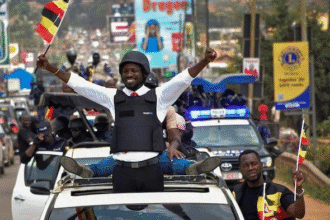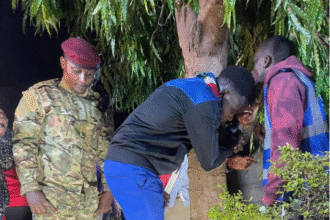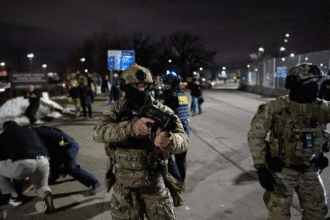
The High Court has temporarily suspended the operations of President William Ruto’s newly formed Multi-Agency Team on the War Against Corruption (MAT-WAC) following a legal petition challenging its constitutionality.
In conservatory orders issued on August 20, 2025, Justice Bahati Mwamuye directed the suspension of the presidential proclamation establishing the team, pending a full hearing and determination of the case.
Pending the hearing inter-partes and determination of the petitioners/applicants’ notice of motion application dated 20/08/25, a conservatory order be and is hereby issued staying the operation and implementation of, or the further operation and/or further implementation of, the Presidential proclamation on the establishment of Multi-Agency Team on War Against Corruption issued under the hand and seal of the President of the Republic on 18/08/2025,
The case will be mentioned on September 9, 2025, to confirm compliance with the court’s directive.
Petitioners Challenge Constitutionality of MAT-WAC
Four petitioners — Magare Gikenyi, Eliud Karanja Matindi, Philemon Abuga Nyakundi, and Dishon Keroti Mogire have filed a case at the High Court, questioning the legality of MAT-WAC, a team unveiled to coordinate a renewed national crackdown on corruption, economic crimes, and illicit financial flows. The task force was officially announced on August 18, 2025, through a presidential proclamation aiming to bring together major state agencies to work in synergy against graft.
However, the petitioners argue that the new team is unconstitutional. According to them, the Ethics and Anti-Corruption Commission (EACC) — established under Article 79 of the Constitution — already serves as the independent body mandated to tackle corruption in Kenya. The formation of another anti-corruption task force by the President, they say, amounts to a duplication of existing constitutional roles. They contend that coordination of anti-graft efforts must be rooted in law and overseen by the appropriate statutory bodies already established under Kenya’s constitutional framework.
Institutional Independence Under Threat?
The petitioners also raise concerns over the inclusion of several constitutionally independent offices in the team, such as the Office of the Director of Public Prosecutions (ODPP), Central Bank of Kenya (CBK), and Directorate of Criminal Investigations (DCI). They argue that integrating these institutions into MAT-WAC could compromise their independence and blur the lines of institutional autonomy. They specifically cite: Article 231(3) of the Constitution, which bars external control over the CBK, and Article 157(10), which protects the ODPP from executive influence. The petitioners also assert that the proposed structure violates these constitutional protections, thereby undermining the principle of separation of powers.
That pending the hearing and determination of this application and petition, the Honourable Court be pleased to issue an interim order directing the Respondents, or any person acting on their behalf, from taking any action, implementing, or relying on the Presidential Multi-Agency Team on War Against Corruption established through the executive proclamation of August 18, 2025, including any related documents, reports, recommendations, or subsequent actions
Funding and Governance Concerns
Another key issue raised in the petition concerns the funding and operational transparency of MAT-WAC. The proclamation states that the task force would be financed through the existing budgets of the participating institutions and through unspecified “other sources.”. The petitioners argue that this opens a significant loophole in terms of public finance oversight, since only the National Assembly and Senate are constitutionally empowered to allocate and appropriate public funds. They also note that the details regarding the remuneration and allowances of the task force members have not been disclosed.
This, they warn, raises serious questions about governance, transparency, and potential misappropriation of public resources. Moreover, they argue that MAT-WAC’s objectives mirror those already assigned to agencies like the EACC, Asset Recovery Agency (ARA), and the Financial Reporting Centre (FRC). In their view, the duplication of roles could lead to wasteful spending and institutional confusion.
Petitioners Seek Court Intervention
The petitioners have asked the High Court to issue conservatory orders suspending all MAT-WAC operations, halting its funding, and barring implementation of any related decisions until the petition is fully heard and determined. They insist the High Court has the jurisdiction to intervene in the matter, as it involves key issues of constitutional interpretation, public finance accountability, and the protection of independent constitutional offices.
Inside the Presidential Task Force
President William Ruto unveiled the eleven-member Multi-Agency Task Force (MAT-WAC) as part of his administration’s drive to combat graft. The team is to be domiciled under the State Department of Justice, Human Rights and Constitutional Affairs, and is to be chaired by an official from the President’s Office, with the Attorney General’s Office providing secretariat services. The institutions represented in the task force include:
- National Intelligence Service (NIS)
- Ethics and Anti-Corruption Commission (EACC)
- Office of the Director of Public Prosecutions (ODPP)
- Directorate of Criminal Investigations (DCI)
- Financial Reporting Centre (FRC)
- Asset Recovery Agency (ARA)
- Kenya Revenue Authority (KRA)
- Central Bank of Kenya (CBK)
- Public Procurement Regulatory Authority (PPRA)
Conclusion
As the legal process unfolds, the fate of MAT-WAC now hangs in the balance. This case will likely set a precedent on how far the executive branch can go in forming parallel bodies to tackle national challenges — and whether such actions align with the letter and spirit of Kenya’s Constitution.





